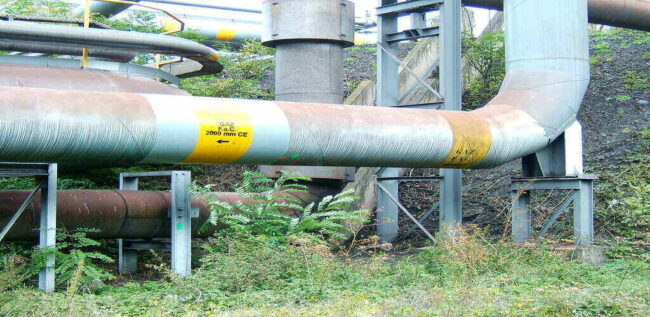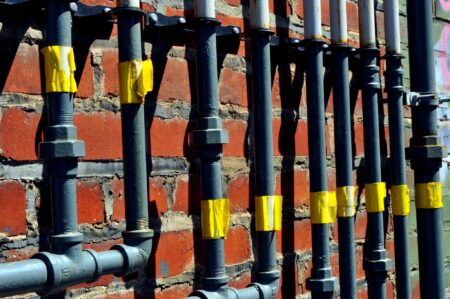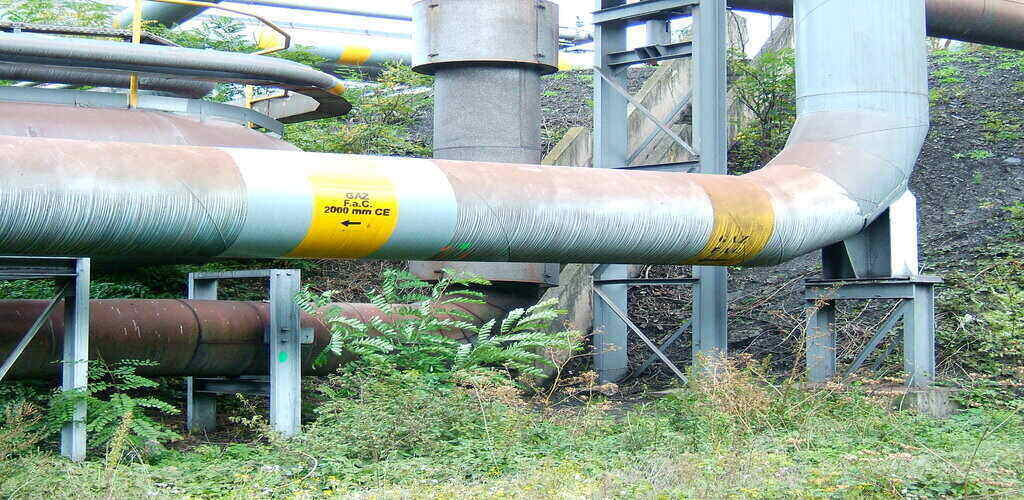
The Prime Minister of Ukraine, Yulia Tymoshenko, said on Thursday that her country had not received any gas from Russia since 10:30 am Moscow time after two major pipelines were damaged by a leak in the Baltic Sea. Tymoshenko told a news conference that the damage was caused by an accident on the Nord Stream pipeline which runs 1,200 kilometers (750 miles) through the Baltic Sea and pumps gas directly to Germany and other European countries. It is under a contract between Gazprom and five European energy companies.
It was built by Gazprom, the Russian state-owned company and operator of the project, and is operated by Nord Stream AG. The pipeline began operating in 2011 and has been under construction since 2009.
It is owned and operated by Nord Stream AG, a joint venture between Russian energy giant Gazprom and five European companies:
- Royal Dutch Shell.
- Uniper SE (formerly Uniper).
- Wintershall Holding GmbH & Co KG (50%).
- E.ON Ruhrgas AG (25%).
- And ENGIE Gas Distribution France S.A.
A spokeswoman for Nord Stream could not immediately comment on how much gas had been lost but said it would be dealt with as an emergency situation until Monday morning local time (03:00 GMT). The closure would last for about five weeks but not affect deliveries to Europe.
In addition to buying its own supply from Russia, Germany also buys some of it from Norway via a separate pipeline called Nord Stream 2. That project has been delayed by legal challenges from Poland which argue that it violates EU rules on state aid to Russia.
The leak was found during routine checks on Saturday. The leak is in the Nord Stream pipeline, which connects Russia’s Baltic Sea coast to Germany via the North Sea. It’s located about 30 kilometers from Stettin, an industrial city in Poland that’s home to more than 100 companies and factories.

Nord Stream said it had shut down one of its two pipelines and was continuing to drain out the contaminated water while it started repairs.
The Nord Stream pipeline leak is a threat to Ukraine, Europe, and Russia.
The pipeline is a direct line from Russia to Germany that would supply Europe with natural gas from Russian fields in Siberia.
It was completed in 2011 and has been delivering 1 billion cubic meters (bcm) of gas per year since then.
The leak occurred on November 9, 2018, when around 10% of all production was lost due to corrosion inside one section of the pipe system (which can hold up to 100% capacity).
The operator Nord Stream AG said it was closing off the affected line for at least seven days, which will affect around 600,000 cargoes per year. The pipeline is 1,224km long and links Russia to Germany via the Baltic Sea. It can transport up to 63 billion cubic meters of natural gas per year under normal conditions.
It has been in operation since July 2012 and its capacity has increased from 50 billion cubic meters to 67 bcm annually since then.
The pipeline is a joint venture between Russian gas giant Gazprom and five European energy companies. It runs under the Baltic Sea, bypassing Ukraine and Poland, to Germany’s northeastern coast.
The pipeline has been operating since 2011 with little disruption to supplies to Europe because of its remote location.
But last year it started leaking at two sites near its compressor station in Lubmin near Greifswald — one of which was repaired within days after being discovered in December 2017 — and then again in January this year when gas leaked into an adjacent pond before being detected by Nord Stream 2 engineers on February 1.
The Nord Stream gas pipeline is one of the most expensive infrastructure projects in history, costing over $7 billion to build. It’s also very controversial because the Germans want it to provide energy independence from Russia and reduce its reliance on Russian natural gas supplies.
The project has been slow to start up because of technical issues related to building underwater without leaks or major accidents happening along the way (like what happened with BP’s Deepwater Horizon oil rig).
With all of this information in mind, it is important to note that the pipeline can be repaired and reopened within a few days. This accident does not affect Europe at large as it is only one line of many transporting gas from Russia through the Baltic Sea.
Furthermore, there are no signs that Gazprom or any other company has been affected by this leak so far (besides a slight decrease in sales).
By Daniel Batalla
Sources:
NY Times: Russia-Ukraine War Nord Stream Gas Leaks Raise Allegations of Sabotage By Melissa Eddy and Victoria Kim
The Guardian: Fears of sabotage as gas pours into Baltic from Nord Stream 1 and 2 pipelines By Marina Hyde
Washington Post: Nord Stream operator decries ‘unprecedented’ damage to three pipelines ByMary Ilyushin,Meg Kelly and Michael Birnbaum
Featured and Top Image Courtesy of LHOON Flickr Page Creative Commons License
Insert Image Courtesy of Marc Falardeau Flickr Page Creative Commons License



